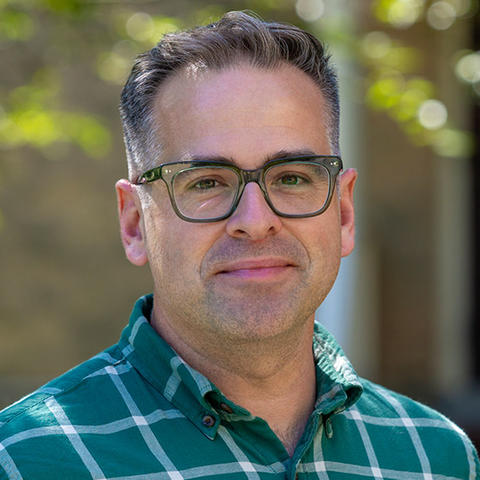The Honor Code Hits the Road

Dean of the College John McKnight, Dean of Students Scott Wojciechowski, Callie Rabins '25, and Caroline Yao '27 attended an Honor Code convention at Davidson College.
Details
Haverford was one of 11 colleges and universities invited to a convention focused on academic integrity and the role of honor councils.
Haverford's honor code, perhaps the purest expression of College values, was first envisioned by the Class of 1900, when academic life was much simpler. The dapper, besuited gentlemen frozen in the sepia-toned photos of yore were most concerned with unproctored exams when they presented their idea to President Isaac Sharpless in 1897. It's hard to think they could have imagined a world where generative AI could churn out a term paper with minimal guidance and a quick mouse click.
But as the code marches to the 130th anniversary of its implementation, the code has remained a malleable yet steadfast beacon that helps Fords navigate social and academic life on campus, even continuing to shape their lives as alums post-graduation.
To learn more about how Haverford's peers are grappling with the complicated contemporary world, Honor Council members Caroline Yao '27 and Callie Rabins '25 packed their weekend bags last month for a jaunt to North Carolina's Davidson College, which convened a conference with 11 colleges and universities with robust honor codes. Their trip was supported by the Kian-Tat Lim 1987 Fund for Strengthening the Honor Code. Vice President and Dean of the College John McKnight and Dean of Students Scott Wojciechowski joined them.
"It was really helpful for us to learn about practices that other institutions have incorporated into their honor codes," Yao, a council co-head, says of the trip. "We felt validated that Haverford has implemented best practices." Yao also notes that Davidson is at the forefront of incorporating restorative practices into its honor code, something the Honor Council has done following last spring's Plenary.
Across the two-day conference, panels and smaller sessions dissected the post-COVID academic world, which conference attendees say has tempted students, many of whom were unsupported and learning independently during the pandemic, to consider easier pathways. Much of the discussion was focused on the rise of easily accessible AI tools such as ChatGPT, as well as online paper sales, both of which have made it easier to break the trust of their peers and their professors.
"AI is a new issue that all of the honor councils are facing, no matter what point they're starting from," Rabins says. "I feel a lot of gratitude that the fund allowed us to go and have this experience. It is going to help us shape the next evolution of the Honor Code and allow it to maintain a really prominent part in life at Haverford."
The experience was just as illuminating for McKnight and Wojciechowski, who says the conference reaffirmed the Honor Code's importance at Haverford and his own professional role at the College. For Wojciechowski, the conference offered a moment to reflect on the role faculty and staff play in fulfilling Haverford's promise to its students and their obligation to serve as upstanding members of the community.
"Are students, when push comes to shove, willing to call a peer out or hold a peer accountable? That's a really tough job," he says. "What I think about is how we model, as the non-students in this community, a similar behavior that we would want our students to aspire to and deliver."
For more about Haverford's Honor Code and artificial intelligence, read "ChatGPT Doesn't Have to Ruin College" by Tyler Austin Harper '14 article in The Atlantic.




